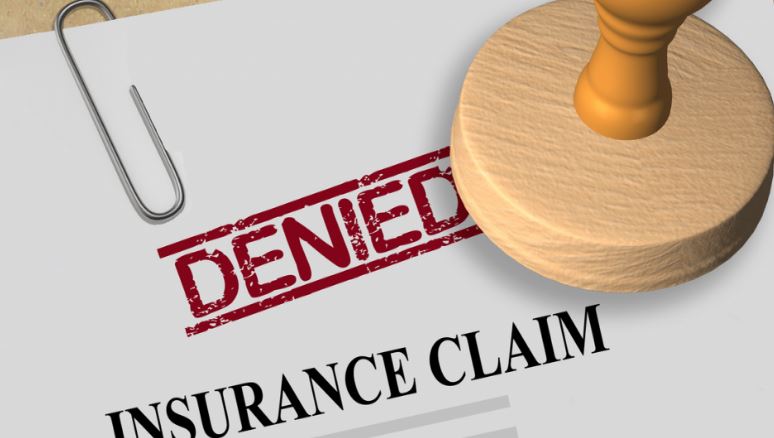When
When you buy insurance, you hope you will never need to use it. But if you have to file a claim, you expect your policy to pay in full. Unfortunately, insurance companies can – and do – deny policyholders’ claims on occasion. In order to help avoid a claim denial this article lists some of the more common reasons why an insurance claim can be denied.
Whether with intent, or due to forgetfulness, failures to disclose or update your insurance company about the items listed below can have many potential negative consequences beyond just a claim denial. They can also result in an insurance policy being cancelled, future higher premiums or a denial of future coverages. For this reason, it’s important to be honest with your insurance company and always keep your policy updated.
LISTING DRIVERS – You must disclose all licensed drivers living in your household as well as all drivers that have regular access to your vehicle(s). If you live with other licensed drivers, they will either need to have their own auto insurance policy in place; be listed on your policy as an occasional driver; or be excluded from your policy as a driver. Regardless of which option above is applicable, you are still required to disclose how many licensed drivers live in your household on the Ontario standard auto insurance application.
LICENSING DETAILS – You must keep the insurance company updated if the licensing details of any listed driver on your auto insurance policy change. This would include disclosing any license suspensions that might occur.
BUSINESS USE OF VEHICLE: You must disclose any business or commercial use of your vehicle, which includes the use of your vehicle in any ride sharing/food delivery programs like UBER, LYFT or DOORDASH. If you use your vehicle for any business related or income generating purposes (not including commuting to work) then you must disclose this to your insurance company.
ADDRESS MISREPRESENTATION – You must provide the accurate “garaging address” of every vehicle you have insured. The garaging address refers to where the vehicle is primarily kept and operated which may be different from your mailing or home address on the policy documents. A common scenario where this issue can come up is with young drivers who are insured under their parent’s policy but they do not live at the same address as their parents and they act as a primary driver of one of the parents vehicles.
VEHICLE MODIFICATIONS – You must inform your insurance company of any modifications to your vehicles as this can impact on the value and/or performance of the vehicle and therefore how the insurance company rates that vehicle.
VEHICLE USAGE – You must keep the usage of your vehicle updated including any changes that might occur to your commute distances or annual km driven.
PROPERTY RENOVATIONS – You must disclose any significant renovations that are in progress or completed. This does not include minor cosmetic renovations but anything involving structural changes or changes that will impact the anticipated rebuilding cost of your home should be disclosed before any renovations begin. Depending on the nature of the work, you may require coverage modifications to your policy.
HOME BASED BUSINESS – You must disclose any home based business operating on the insured premises. Any claim related to your home based business will be denied under a standard home/condo/renter’s insurance policy. In order to ensure proper coverage you will either need a home based business endorsement added to your policy or you may require a separate business insurance policy depending on the nature of your operations. Even if you have a separate business insurance policy in place, you must still notify your insurance company about the existence of your home based business.
VACANCY – You must disclose to your insurance company if any of your properties are vacant. The definition of vacant can vary between insurance companies but it generally means that regardless of the presence of any furnishings, all occupants have moved out without any intention to return to reside continuously. In the case of a newly constructed or acquired home, no occupant has yet taken up residence. An important variable is that the home must be occupied by someone with the intent to live there continuously. It will not suffice to simply “check-in” on a property on a regular or ongoing basis.
LEAVING YOUR PROPERTY FOR MORE THAN 4 CONSECUTIVE DAYS DURING THE “HEATING SEASON” – If you’re gone for more than four consecutive days during a season when you would normally heat your home, insurance companies may not cover any loss or damage if any part of a plumbing, heating, or air conditioning system freezes. To avoid a claim denial in this situation it is important that you take one of the following precautions: 1) Have a competent adult visit your property each day you’re gone to ensure the heating is being maintained; 2) Shut off the water supply and drain all the pipes, as well as any domestic water containers before leaving.
RENTING YOUR PROPERTY – You must disclose if you plan to rent your property either as a short-term or long-term rental. Failure to do so could result in any claim with your insurance company being denied including third party liability claims against you.
AUXILARY HEAT SOURCES – The use of any auxiliary heating system should be disclosed to your insurance company in order to ensure compliance with your property insurance policy. The use of wood stoves, fireplaces or other heating equipment carries certain additional risks that may affect how your insurance policy is rated.
WHAT CAN I DO IF MY CLAIM IS DENIED?
First and foremost reach out to your CMR Broker for advice. We can help review the reasons your claim was denied and also help advocate on your behalf if necessary.
If you have questions about a recent claim, or if you simply have more questions about your insurance policy and whether it is properly rated, get in touch with your CMR broker and we will be happy to assist you.




